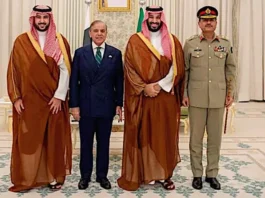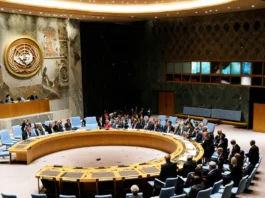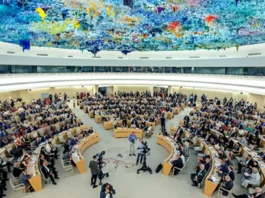The United Nations: A Pillar of Global Improvement
The United Nations (UN), established in 1945, has emerged as a cornerstone of international cooperation and development over its 80-year history. Its overarching missions are centered on maintaining world peace and promoting social advancement, making significant strides in numerous areas. Over the decades, the UN has spearheaded initiatives aimed at reducing conflict, fostering human rights, and enhancing global education and healthcare access.
One of the UN’s remarkable achievements is its deployment of peacekeeping forces, which have played a pivotal role in stabilizing nations transitioning from conflict to peaceful governance. The presence of peacekeepers has often been instrumental in preventing the escalation of violence and restoring order in war-torn regions. Through various peacekeeping missions, the UN has demonstrated its commitment to promoting security and rebuilding communities worldwide.
Moreover, the United Nations has actively championed human rights through various treaties and declarations, notably the Universal Declaration of Human Rights in 1948. This landmark document laid the foundation for international human rights standards and has been a guiding principle in myriad global initiatives aimed at safeguarding individual liberties and dignity. The UN continues to advocate for marginalized populations, striving to ensure that every individual, regardless of race, gender, or socioeconomic status, can exercise their rights freely.
The UN’s focus on social development encompasses critical areas such as healthcare and education. Initiatives led by the UN, such as the Sustainable Development Goals (SDGs), have sought to enhance global health standards and make quality education accessible to all. Through partnerships with various nations and organizations, the UN has made strides in eradicating diseases, improving sanitation, and expanding educational resources, all contributing to building healthier, more educated societies.
Additionally, the UN’s commitment to global safety is evident through its efforts in the successful removal of landmines, which have historically posed grave threats to civilian populations. The UN’s Mine Action Programme has effectively contributed to clearing affected areas, ensuring that communities can rebuild without the fear of hidden dangers. In conclusion, the United Nations has significantly shaped a more peaceful and equitable world through its various initiatives and commitments over the past 80 years, addressing global challenges while enhancing the quality of life for countless individuals.
Human Rights and Justice: The UN’s Continuing Commitment
The United Nations (UN) is fundamentally rooted in the pursuit of human rights and justice, reflecting a steadfast commitment to uphold the dignity of all individuals worldwide. Since its inception, the organization has played a pivotal role in documenting human rights violations, striving to hold accountable those who infringe upon these essential liberties. Through a rigorous examination of reports from various human rights organizations, the UN remains vigilant in identifying abuses and advocating for the global observance of human rights standards.
A key aspect of the UN’s mandate is its advocacy for stronger protections against human rights abuses. Engaging with member states, the UN promotes legislative and policy reforms that prioritize the rights of marginalized populations. The organization collaborates with over 90 countries, providing technical assistance to enhance their legal frameworks in alignment with international law. This cooperative approach not only bolsters local capacities to address human rights issues but also fosters a culture of accountability and rule of law essential for just societies.
Significant milestones in promoting compliance with human rights standards underscore the UN’s ongoing efficacy. For instance, the establishment of various monitoring bodies and treaty mechanisms has led to measurable improvements in numerous countries. The UN’s efforts in mobilizing international support for compliance further exemplify its dedication to fostering a respect for human rights globally. Initiatives aimed at governmental reform, including capacity-building programs and education, empower nations to implement sustainable practices that respect the rights of citizens.
In essence, the UN’s unwavering dedication to human rights and justice is evident through its continuous efforts to document abuses, advocate for reforms, and work collaboratively with nations. The organization stands as a bulwark against injustice, tirelessly striving to ensure that human rights are upheld in every corner of the globe.
Adapting to New Global Challenges: The UN’s Response
As the United Nations (UN) marks its 80th anniversary, it faces a myriad of contemporary challenges that demand immediate attention. Among these is the escalating climate crisis, which poses significant threats to global stability, food security, and human health. The UN recognizes that addressing climate change requires a collective international effort, and emphasizes the importance of adhering to the Paris Agreement to limit global warming to well below 2 degrees Celsius. This commitment underlines the necessity of investing in sustainable technologies and transitioning toward renewable energy sources, which can help mitigate the adverse impacts of climate change.
In addition to environmental concerns, the UN is increasingly focused on addressing rising inequalities and poverty levels. The repercussions of the COVID-19 pandemic have exacerbated existing disparities, revealing systemic flaws within social and economic frameworks worldwide. The recommendations outlined in the Secretary-General’s report, ‘Our Common Agenda,’ highlight the need for a re-evaluation of global economic models, advocating for inclusive growth strategies that prioritize marginalized communities. By fostering equitable access to resources, education, and healthcare, the UN aims to empower individuals and promote shared prosperity.
Furthermore, the UN acknowledges emerging threats such as terrorism and the regulatory challenges posed by artificial intelligence (AI). As global interconnectivity increases, so does the risk of extremist ideologies and cyber threats that can destabilize nations. To effectively combat these threats, the UN advocates for enhanced international cooperation, emphasizing the importance of multilateralism in devising comprehensive solutions. Moreover, in light of rapid advancements in AI technology, establishing ethical guidelines and regulatory frameworks is crucial to ensure that innovations contribute positively to society rather than exacerbate existing issues.
In summary, the UN’s 80-year legacy is one of resilience and adaptation. As it navigates contemporary challenges, its commitment to fostering cooperation and multilateralism will be pivotal in addressing the pressing global issues of our time.
The Future of Multilateralism: The Pact for the Future and Beyond
The “Pact for the Future” represents a significant step forward in the realm of multilateral efforts, driven by the urgent necessity to revitalize global cooperation in a rapidly changing world. This agreement emphasizes the importance of inclusivity, particularly for women, youth, and marginalized communities, empowering these groups to play an integral role in peace processes. By ensuring diverse representation, the Pact acknowledges that sustainable peace relies not only on agreements among nations but also on the engagement of those directly affected by conflict.
Moreover, the Pact for the Future highlights the importance of addressing the root causes of conflict through sustainable development. It posits that fostering economic growth and social progress in conflict-affected areas reduces tensions and builds resilience. Sustainable development initiatives aimed at education, healthcare, and infrastructure can break the cycle of poverty and violence, creating a foundation for lasting peace. Thus, the agreement sets forth a vision where development and peacebuilding go hand-in-hand, encouraging nations to collaborate on initiatives that promote stability and prosperity.
An essential aspect of contemporary governance is the Global Digital Compact, which calls for a shared framework among nations to address the challenges posed by the digital revolution. In this context, the urgency of establishing governance structures for artificial intelligence (AI) cannot be overstated. As technology continues to advance at an unprecedented pace, leaders must actively engage in discussions to create policies that promote ethical AI usage, combat misinformation, and ensure equitable access to digital resources. The Pact for the Future thus serves as a call to action for world leaders to translate agreements into measurable outcomes that tangibly impact lives, illustrating the modern expectations of multilateralism in a convoluted global landscape.




